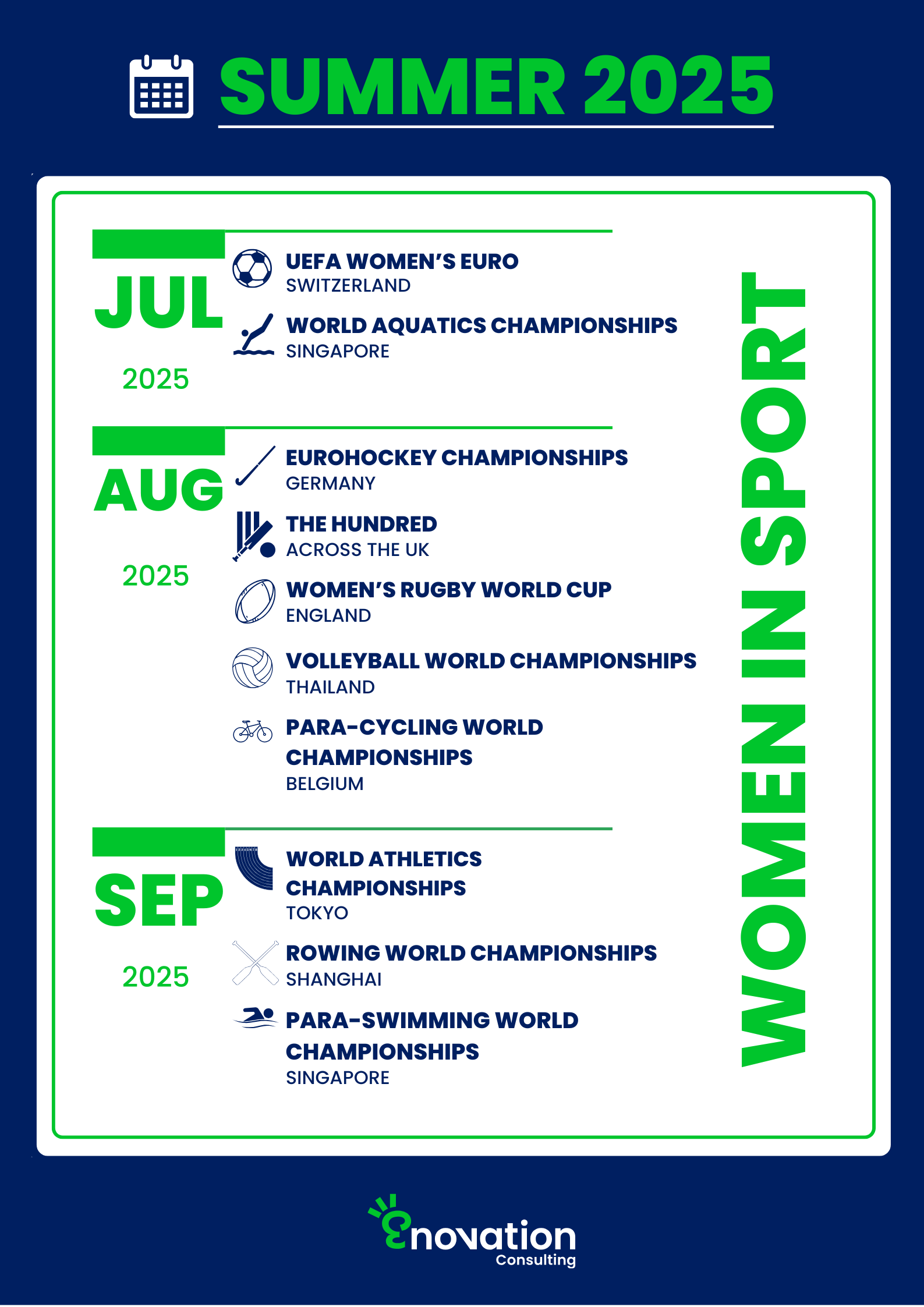Summer 2025: A Defining Moment for Women’s Sport
Image Credit: UEFA (2025)
Record-breaking events are driving unprecedented growth across women’s sport.
Rising investment is opening new pathways for professionalisation and global reach.
A focus on long-term strategy, sustainability, and community values is shaping a new era for the industry.
Women’s Sport is seizing the spotlight this summer. This year, elite women’s sport is forecast to generate over £2.35 billion in global revenue – more than double 2024’s record breaking total. Major events like the UEFA Women’s EURO, the Women’s Rugby World Cup, and The Hundred are drawing millions of fans and reshaping the commercial landscape.
Between July and September, some of the biggest women’s sporting events in the world will take place:
Women’s Summer of Sport: Calendar
Equity Challenges Behind Women’s Sport Growth
However, behind the headlines, a more complex reality emerges — visibility alone does not equal equity. Despite rising sponsorship, many women’s leagues still operate at a loss, with FIFA reporting an average global player salary of just $10,900.
The growth of women’s sport is exciting not just for its reach, but for how it challenges traditional models. Fans are deeply values-driven, in which authenticity matters. Studies show that for every $1 invested in women’s sport, sponsors can gain over $7 in customer value — but only when that investment is long-term, genuine, and aligned with the values of the sport’s community.
Supporting the Game Responsibly with Ethics and Sustainability
Women’s sport also offers a fresh opportunity to embed sustainability from the ground up. Athletes like Innes Fitzgerald - a British runner dubbed the ‘Greta Thunberg of Sport’ - are already leading conversations on climate and ethics. In a recent interview she discussed:
"I will continue to talk about environmental issues in the future, because it’s really important, and I strongly believe that we as athletes have a responsibility.”
Meanwhile, governing bodies like UEFA are rolling out strategies to professionalise and grow the game responsibly.
For brands, stakeholders, and sports organisations, the takeaway is clear: women’s sport is not just growing, it’s evolving. To support meaningful change, we must look beyond the spotlight and invest in the systems, values, and infrastructure that ensure it thrives long into the future.


